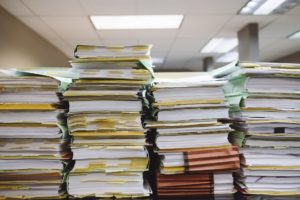 One defining characteristic of civil litigation in the United States is discovery—the ability to demand that the other party disclose documents and information in its possession through document requests, interrogatories, and depositions. Discovery rights are generally much more limited in other countries, which often forces parties to make do with whatever documents and information they have at hand. However, parties to litigation outside the United States can use the U.S. federal court system to collect evidence through a provision of the United States Code known as “Section 1782.”
One defining characteristic of civil litigation in the United States is discovery—the ability to demand that the other party disclose documents and information in its possession through document requests, interrogatories, and depositions. Discovery rights are generally much more limited in other countries, which often forces parties to make do with whatever documents and information they have at hand. However, parties to litigation outside the United States can use the U.S. federal court system to collect evidence through a provision of the United States Code known as “Section 1782.”
Section 1782 has been successfully used to collect a variety of evidence, such as:
- Social networking service records for defamation cases
- Bank records for divorce cases
- Technical documents for product liability cases
- Corporate e-mails and personnel interviews for labor and employment cases
Requirements
There are four requirements to obtain discovery under Section 1782:
- There must be a request by a foreign or international tribunal, or by an interested person. The “interested person” making the request is typically the plaintiff to the foreign case, but may also be a defendant or a third party with an interest in the case. Letters rogatory from a foreign court are not required.
- The request must seek evidence in the form of testimony, a statement, or the production of a document or thing.
- The evidence must be for use in a proceeding in a foreign or international tribunal. The proceeding need not be pending at the time of the application; it is possible to obtain evidence through Section 1782 before starting a lawsuit overseas.
- The person from whom discovery is sought must reside or be found in the district of the district court ruling on the application for assistance. In the case of a corporation or other legal entity, this is generally the location of its incorporation or its headquarters. Some courts will allow discovery against entities with a branch office or other presence in the jurisdiction.
Our firm is qualified to practice before the U.S. District Courts for the Southern and Eastern Districts of New York, which cover New York City and Long Island, as well as the U.S. District Court for the District of Columbia. This allows us to file Section 1782 requests for discovery against persons and entities in each of these locations. We can also work with local counsel in other jurisdictions to obtain discovery in those jurisdictions.
Limitations
U.S. courts are not required to allow discovery under Section 1782, and may deny or limit discovery on a number of discretionary grounds. In deciding whether to allow discovery, the court may consider the need for the discovery, the nature of the foreign proceeding, the nature and rules of the foreign tribunal, and whether the request is unduly burdensome.
The most common issue in Section 1782 requests is the question of whether discovery is “unduly burdensome.” Courts routinely deny requests that appear to be broader than necessary, considering the need for the evidence in the litigation, the privacy of the individuals concerned, and the time and cost required to obtain and compile the evidence.
By default, a Section 1782 order applies the Federal Rules of Civil Procedure to the collection of evidence, meaning that evidence can be collected as if it were evidence for a U.S. domestic lawsuit. However, the court may order that other practices and procedures apply to the collection of evidence, such as the practices and procedures of the foreign court.
Section 1782 discovery may not be compelled in violation of any legally applicable privilege. The most commonly invoked privilege is the attorney-client privilege, which protects communications between clients and their attorneys for the purpose of obtaining legal advice. Other privileges include the doctor-patient privilege, priest-penitent privilege, and spousal privilege.